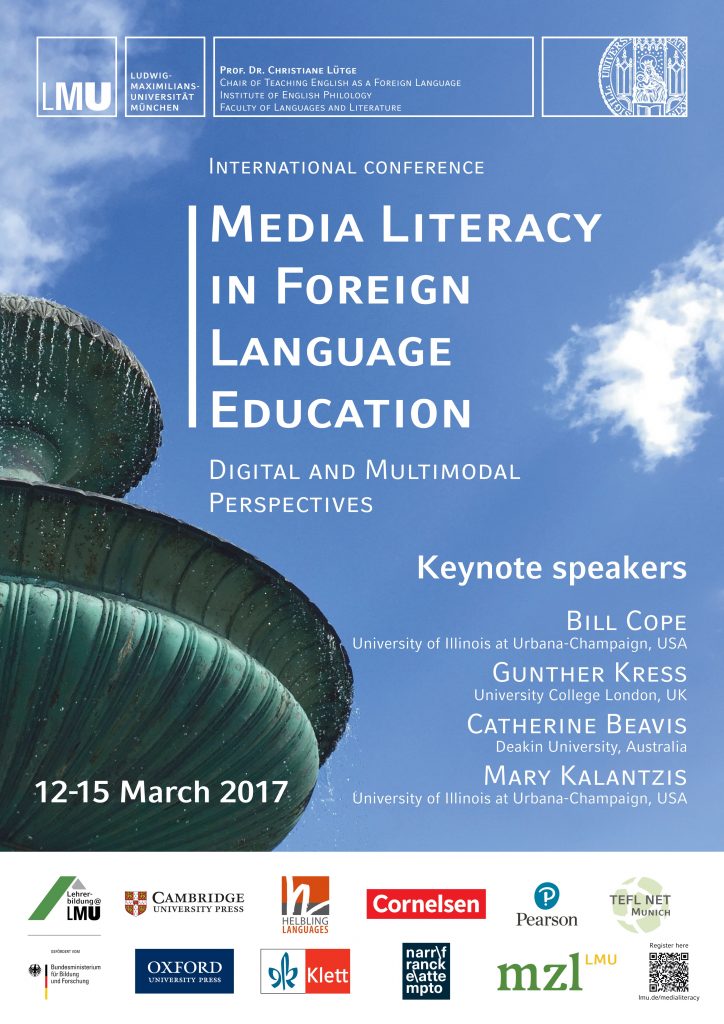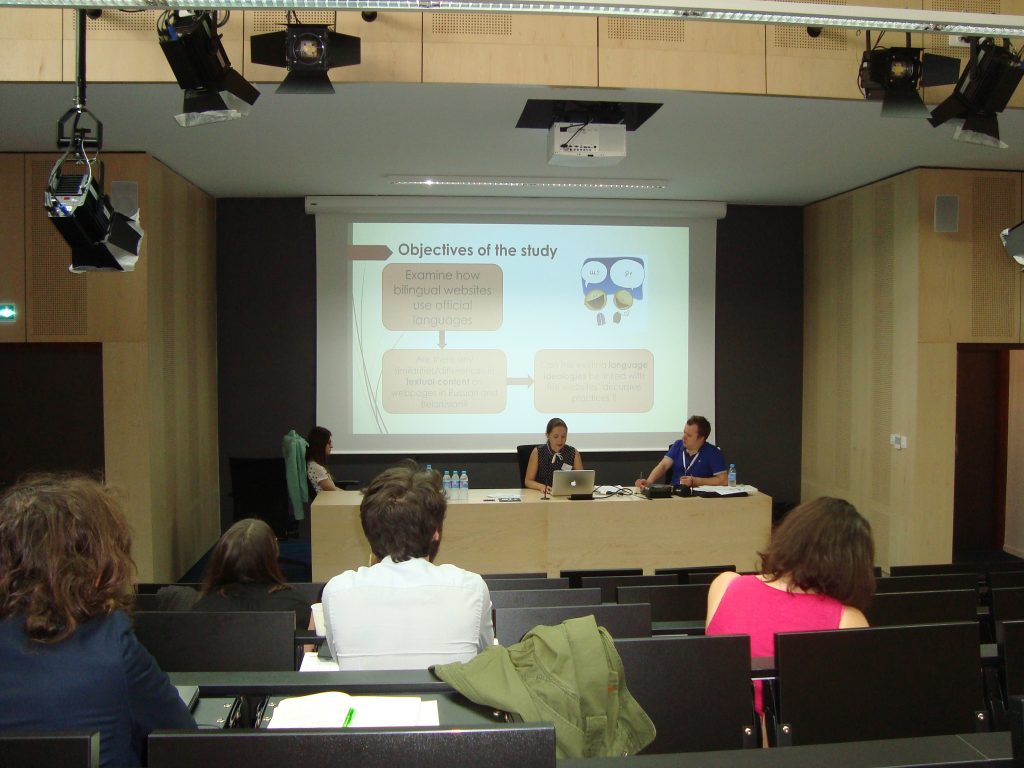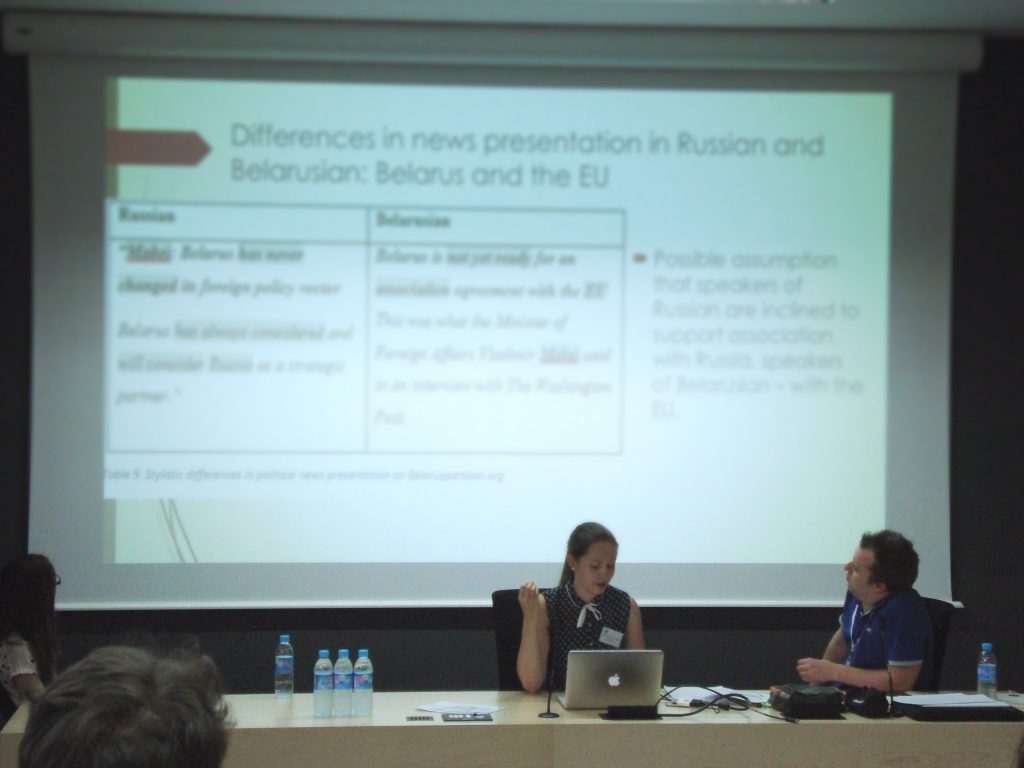This week I attended an international conference in Munich organised by University of Munich: Ludwig-Maximilians-Universität München, titled “Media Literacy in Foreign Language Education: Digital and Multimodal Perspectives (12-15 March 2017). The conference brought together academics from around the world investigating the implications of media literacy on language education focusing on literature and storytelling, materials and resources, innovations in pop cultural approaches, literacies in film and media studies, as well as CALL/TELL in higher education and teacher education. The conference started with an inspiring plenary by Bill Cope in which he challenged existing online teaching practices and explored how an e-learning platform has the potential to transform instruction and assessment. In another plenary talk, Gunther Kress presented an overview of the principles of social semiotics. There were two other plenaries by Catherine Beavis and Mary Kalantzis. Catherine Beavis explored digital gaming as a venue for multimodal expression, while Mary Kalantzis offered a comprehensive overview of the work carried out by the New London Group since 1994 focusing on the development of a grammar of multimodality and future directions in the field.
My talk was on the first day of the conference and was titled “Learning and teaching languages in technology-mediated contexts: the relevance of social presence, participatory literacy and multimodal competence”. It was very well received with a good number of listeners and a fruitful discussion at the end. Overall, all went well, except the fact that my co-presenter, Mirjam Hauck of the Open University, UK was unable to attend due to a last minute health emergency.
I attended several thought-provoking presentations: Judith Buendgens-Kosten described a plurilingual language learning game being developed as part of an Erasmus+ project; Erhan Aslan (Reading University), presented his findings from a qualitative meta analysis on learner perceptions of the implementations of blogs, wikis and chat tools in EFL/ESL writing practices; Hsin-I Chen explored how Taiwanese EFL learners established multimodal identities in an intercultural exchange via Skype drawing on the many multimodal/semiotic resources present in the platform.
I had many networking opportunities as part of the socials organised by the conference committee. It was wonderful to meet Regina Brautlacht, Maria Martins, Maria Bortoluzzi, Francesca Bianchi and Niki Canham, some of which I had online and/or offline encounters before. It was a great pleasure to be part of the media/digital literacies community for a few days, which certainly left me with great ideas to work on. Finally, I would like to acknowledge the support of ECLS in funding my participation to this conference via the School Conference Fund.
Blog by Dr. H. Müge Satar, Lecturer in Applied Linguistics and TESOL at the School of Education, Communication and language Sciences.






